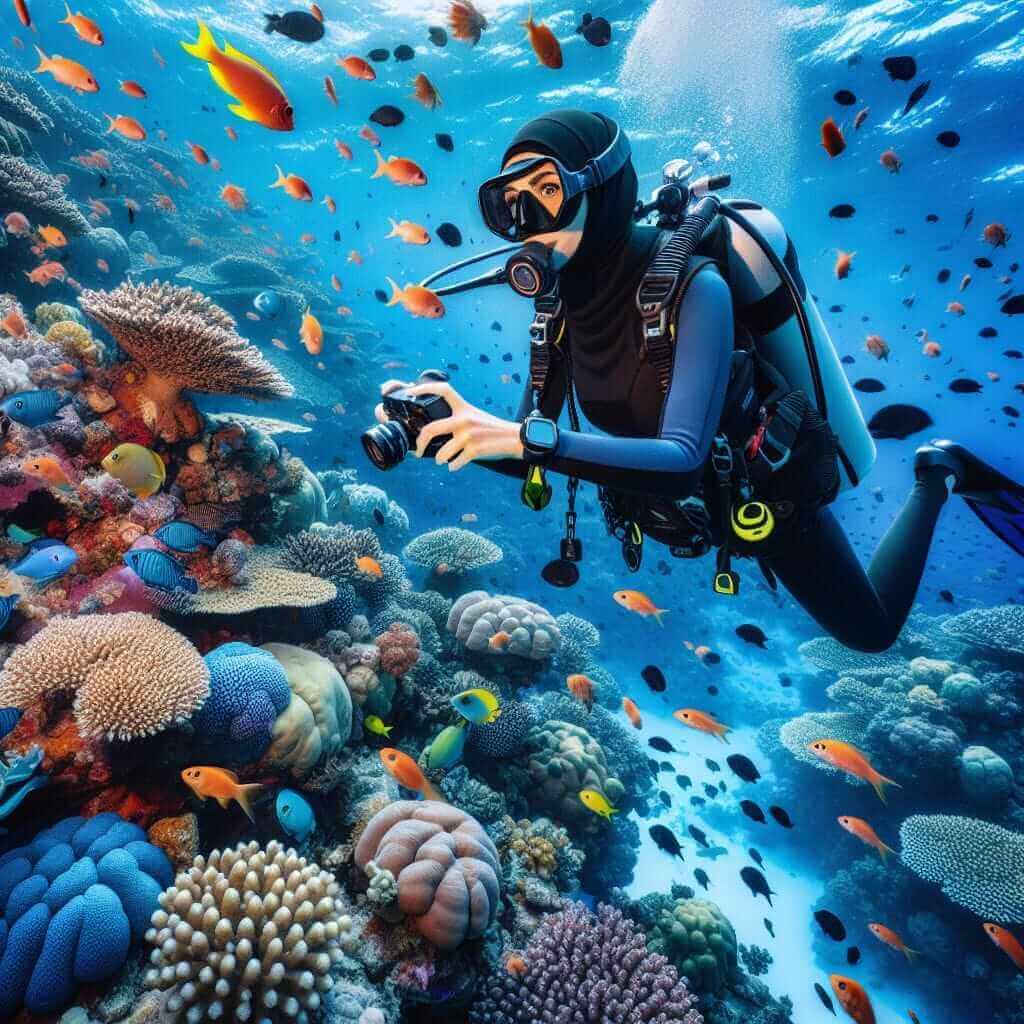Water sports, a popular theme in IELTS Speaking and Writing tests, offer a dynamic way to test your vocabulary and descriptive skills. Whether you’re a seasoned surfer or simply enjoy a relaxing dip in the pool, understanding how to discuss water sports effectively can make a splash in your IELTS performance.
What Defines a Water Sport?
A water sport, at its core, is any recreational activity that takes place in or on water. This can range from the tranquil to the extreme, encompassing a vast spectrum of activities for all interests and skill levels.
Popular Examples of Water Sports
Let’s explore some common examples, grouped by their intensity and skill requirements:
1. Gentle Water Activities: Perfect for Relaxation and Beginners
- Swimming: A foundational water skill and a popular recreational activity, suitable for all ages.
- Example sentence: “Swimming laps is my preferred method of exercise.”
- Snorkelling: Explore the underwater world with minimal equipment, observing marine life in shallow waters.
- Example Sentence: “We went snorkelling in the coral reefs of Thailand, marvelling at the colourful fish.”
- Stand-up Paddleboarding (SUP): A relaxing way to enjoy calm waters, ideal for enjoying scenic views.
- Example Sentence: “SUP has become increasingly popular, even my grandparents have tried it!”
- Kayaking/Canoeing: Explore waterways and enjoy the tranquility of nature at your own pace.
- Example Sentence: “We spent the afternoon kayaking down the serene river, surrounded by lush greenery.”
2. Surface Water Sports: Harnessing the Power of Wind and Waves
- Surfing: Riding ocean waves using a surfboard, demanding balance and a sense of timing.
- Example Sentence: “Surfing requires dedication and practice, but the thrill of riding a wave is unmatched.”
- Windsurfing: Combining elements of surfing and sailing, propelling a board across water using wind power.
- Example Sentence: “The strong winds made for perfect windsurfing conditions, with sails billowing across the bay.”
- Kitesurfing: Using a large kite to pull you across water on a board, an exhilarating and physically demanding sport.
- Example Sentence: “Kitesurfing is not for the faint of heart, as it requires strength, control, and a taste for adventure.”
- Sailing: Navigating a sailboat using wind power, from leisurely cruises to competitive racing.
- Example Sentence: “Sailing offers a unique sense of freedom, harnessing the elements to glide across the open water.”
3. Underwater Sports: Delving into the Depths
- Scuba Diving: Exploring the underwater world equipped with breathing apparatus, discovering reefs, shipwrecks, and marine life.
- Example Sentence: “Scuba diving in the Great Barrier Reef was an unforgettable experience, witnessing the biodiversity firsthand.”
- Free Diving: Diving underwater on a single breath-hold, pushing the limits of human endurance.
- Example Sentence: “Free diving requires mental focus and physical discipline to conserve oxygen and explore the depths.”

IELTS Exam Tips: Talking About Water Sports
- Vocabulary is Key: Use precise nouns (e.g., “scuba gear,” “kayak paddle”), vivid verbs (“glided,” “plunged”), and descriptive adjectives (“crystal-clear water,” “adrenaline-pumping ride”).
- Speak from Experience: If you have personal experience with a water sport, share it! Describe the sensations, challenges, and rewards. If not, discuss a sport you find interesting and why.
- Stay Relevant: When answering IELTS questions, connect your responses to the prompt. Don’t simply list water sports; elaborate on why they are popular, their benefits, or any related topic mentioned.
Conclusion
Mastering water sports vocabulary not only broadens your language skills but also equips you to confidently tackle a range of IELTS topics. Remember to practice using these terms in context, and soon you’ll be navigating the waters of the IELTS exam with ease.